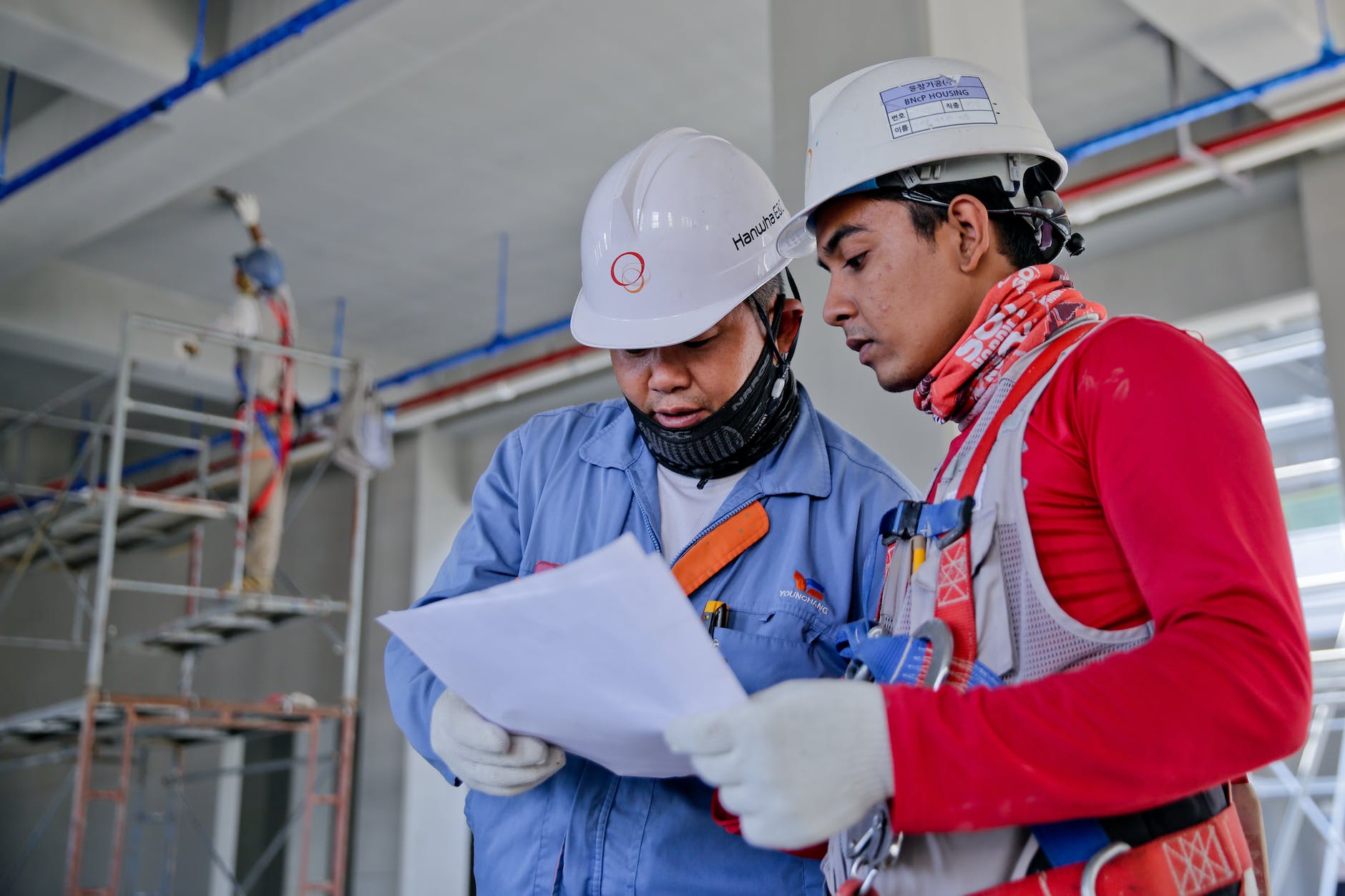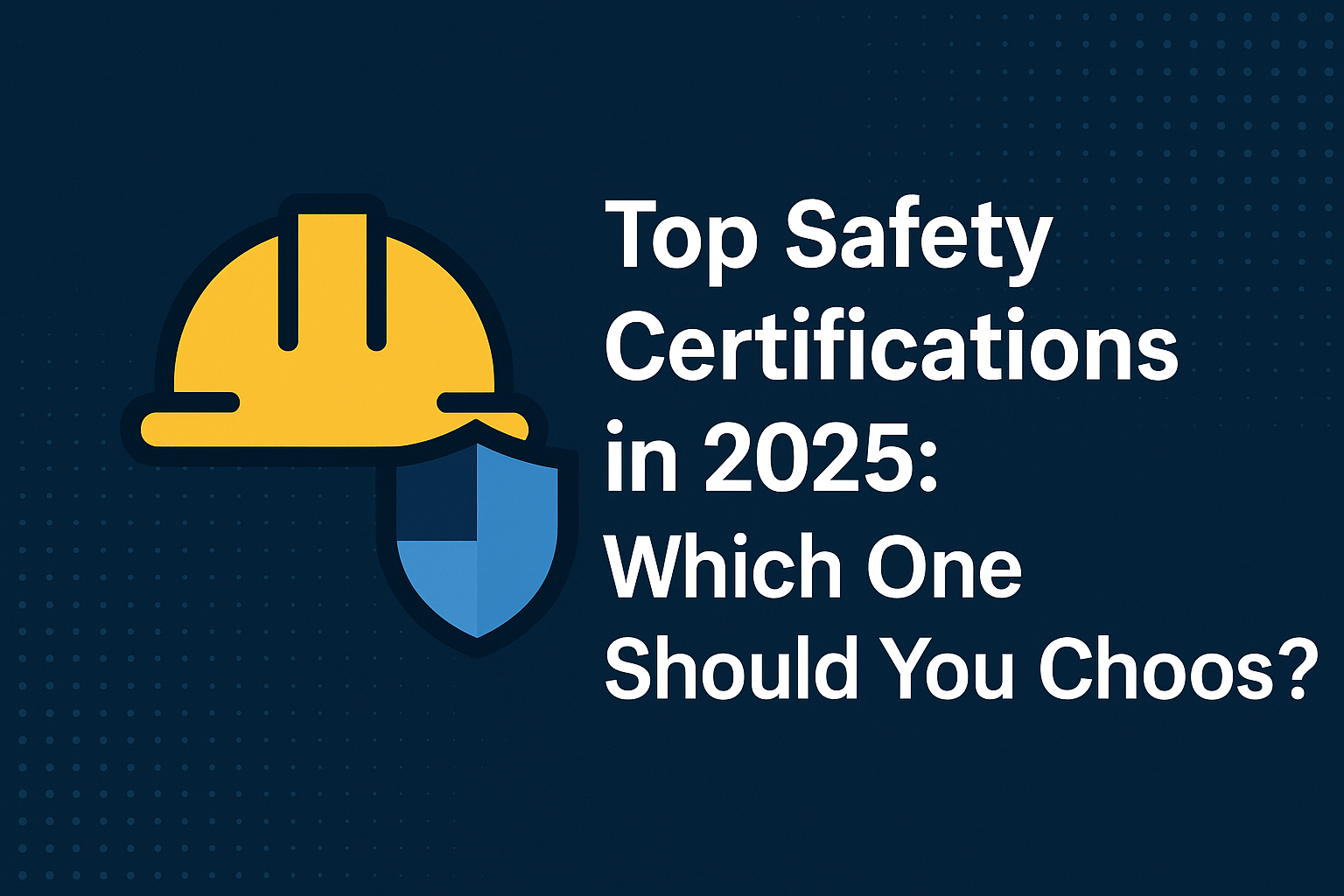
Safety Officer: What are the Duties of Safety Officer?
Safety officers play a crucial role in ensuring the well-being of individuals in various industries. Their responsibilities go beyond rule enforcement; they are instrumental in creating a culture of safety within organizations.
I. Introduction
A. Brief Overview of the Role of a Safety Officer
In any workplace, safety is paramount. Safety officers are professionals dedicated to maintaining a secure working environment. They play a pivotal role in preventing accidents and ensuring regulatory compliance.
B. Importance of Safety in Various Industries
Safety is not just a legal requirement but a moral obligation for companies. The well-being of employees directly impacts productivity and organizational success. Safety officers contribute significantly to achieving a balance between workplace safety and operational efficiency.
II. Responsibilities of a Safety Officer
A. Conducting Risk Assessments
One of the primary duties of a safety officer is to assess potential risks within a workplace. This involves identifying hazards, evaluating their potential impact, and implementing preventive measures.
B. Developing and Implementing Safety Policies
Safety officers formulate and enforce safety policies. These guidelines serve as a framework for employees to follow, ensuring a standardized approach to safety.
C. Providing Safety Training to Employees
Effective communication is key. Safety officers conduct regular training sessions to educate employees on safety protocols, emergency procedures, and the proper use of safety equipment.
D. Inspecting and Maintaining Safety Equipment
Regular inspections of safety equipment are crucial. Safety officers ensure that all safety gear, from fire extinguishers to protective clothing, is in optimal condition.
E. Investigating Workplace Accidents and Incidents
In the unfortunate event of an accident, safety officers conduct thorough investigations. They analyze the root causes and recommend corrective actions to prevent future occurrences.
A Safety Officer plays a crucial role in ensuring a safe and healthy work environment. The duties of a Safety Officer typically include:- Risk Assessment:
- Conducting regular risk assessments to identify potential hazards in the workplace.
- Analyzing and evaluating risks associated with various tasks and processes.
- Safety Inspections:
- Performing routine inspections of the workplace to ensure compliance with safety regulations and standards.
- Identifying and addressing any unsafe conditions or practices.
- Training and Education:
- Developing and delivering safety training programs for employees.
- Ensuring that all workers are aware of safety protocols and procedures.
- Emergency Preparedness:
- Developing and implementing emergency response plans.
- Conducting drills to test the effectiveness of emergency procedures.
- Incident Investigation:
- Investigating accidents, incidents, and near misses to determine the root causes.
- Recommending corrective actions to prevent future occurrences.
- Safety Policies and Procedures:
- Developing and updating safety policies and procedures.
- Communicating changes in safety regulations and ensuring compliance.
- Personal Protective Equipment (PPE):
- Assessing the need for and ensuring the proper use of PPE.
- Monitoring and enforcing the use of safety equipment.
- Compliance Monitoring:
- Keeping abreast of safety laws, regulations, and industry standards.
- Ensuring the organization complies with relevant safety requirements.
- Safety Communication:
- Facilitating communication between management and employees regarding safety matters.
- Promoting a safety culture within the organization.
- Record Keeping:
- Maintaining accurate records of safety inspections, training sessions, and incidents.
- Generating reports on safety performance for management review.
- Hazardous Materials Management:
- Overseeing the proper handling, storage, and disposal of hazardous materials.
- Ensuring compliance with regulations related to hazardous substances.
- Continuous Improvement:
- Participating in the ongoing evaluation of the safety program.
- Recommending and implementing improvements to enhance workplace safety.
A Safety Officer plays a pivotal role in preventing accidents, protecting the well-being of employees, and ensuring compliance with safety standards and regulations.III. Qualities of an Effective Safety Officer
A. Communication Skills
Safety officers need to convey complex safety information in a clear and understandable manner. Effective communication fosters a shared responsibility for safety among all employees.
B. Attention to Detail
The ability to identify potential hazards requires a keen eye for detail. Safety officers must be meticulous in their observations to maintain a safe environment.
C. Knowledge of Safety Regulations
Staying up-to-date with evolving safety regulations is non-negotiable. Safety officers need in-depth knowledge to ensure compliance and avoid legal issues.
D. Problem-Solving Abilities
Safety officers often encounter unique challenges. Strong problem-solving skills enable them to address issues promptly and implement effective solutions.
E. Leadership Skills
Being a safety leader requires influencing others positively. Safety officers inspire and guide employees toward a shared commitment to safety.
IV. Industries Requiring Safety Officers
A. Construction
In the construction industry, safety officers oversee the implementation of safety measures in a dynamic and often hazardous environment.
B. Manufacturing
Safety officers in manufacturing plants focus on preventing accidents and ensuring the safe operation of machinery.
C. Healthcare
In healthcare settings, safety officers address unique challenges, including infection control and patient safety.
D. Oil and Gas
The oil and gas industry demands stringent safety protocols, and safety officers play a vital role in enforcing them.
E. Transportation
Safety officers in transportation ensure the safety of both goods and passengers, addressing risks associated with logistics.
V. Challenges Faced by Safety Officers
A. Balancing Safety and Productivity
Striking the right balance between safety and productivity is an ongoing challenge. Safety officers must implement effective measures without compromising efficiency.
B. Keeping Up with Evolving Safety Regulations
The regulatory landscape is constantly evolving. Safety officers must stay informed to ensure compliance with the latest standards.
C. Handling Resistance to Safety Measures
Resistance to change is common. Safety officers need to navigate employee reluctance and foster a positive attitude towards safety.
D. Addressing Cultural Differences in Safety Practices
In multinational corporations, safety officers encounter diverse cultural perspectives on workplace safety. Adapting strategies to accommodate these differences is essential.
E. Coping with the Emotional Toll of Workplace Incidents
Dealing with the aftermath of accidents can take an emotional toll on safety officers. Coping mechanisms and support systems are crucial for their well-being.
VI. Importance of Safety Culture
A. Creating a Positive Safety Culture
A positive safety culture is built on trust, communication, and shared values. Safety officers play a pivotal role in cultivating an environment where safety is everyone’s responsibility.
B. Involving Employees in Safety Initiatives
Empowering employees to actively participate in safety initiatives enhances the effectiveness of safety programs. Safety officers encourage a collaborative approach to ensure a safer workplace.
C. Recognizing and Rewarding Safe Behavior
Acknowledging and rewarding individuals for adhering to safety protocols reinforces positive behavior. Safety officers implement recognition programs to motivate employees.
D. The Impact of Safety Culture on Overall Organizational Success
A strong safety culture contributes to organizational success. Reduced accidents lead to increased productivity, employee satisfaction, and a positive public image.
VII. Training and Certification for Safety Officers
A. Educational Requirements
Safety officers typically hold degrees in occupational health and safety, engineering, or related fields. Higher education provides a solid foundation for understanding safety principles.
B. Professional Certifications
Certifications such as Certified Safety Professional (CSP) and Occupational Health and Safety Technician (OHST) enhance a safety officer’s credibility and expertise.
C. Continuous Learning and Development
Staying abreast of industry developments is essential. Safety officers engage in continuous learning to adapt to new challenges and technologies.
VIII. Future Outlook for Safety Officers
A. Increasing Demand for Safety Professionals
The growing emphasis on workplace safety is driving demand for qualified safety professionals across industries.
B. Evolving Roles and Responsibilities
Safety officers will likely take on broader roles, encompassing not only physical safety but also mental health and well-being in the workplace.
C. Emphasis on Mental Health and Well-Being
Recognizing the importance of mental health, safety officers will play a key role in creating supportive environments that prioritize employees’ psychological well-being.
IX. Conclusion
A. Summarizing the Vital Role of Safety Officers
In conclusion, safety officers are unsung heroes, ensuring the well-being of employees and contributing to the overall success of organizations.
B. Encouraging a Commitment to Workplace Safety
The commitment to workplace safety extends beyond the role of safety officers. Everyone plays a part in creating a secure and healthy work environment.
Safety Manager: What is the qualification required to become a Safety Manager?
Safety Engineer: What is the Qualification Required to Become a Safety Engineer?
Which Course is Best for Safety Officer?
How to Become an Occupational Health and Safety Officer
X. FAQs
A. What Qualifications Are Needed to Become a Safety Officer?
To become a safety officer, a relevant degree in occupational health and safety or a related field is typically required. Additionally, obtaining professional certifications enhances credibility.
B. How Can Companies Promote a Strong Safety Culture?
Companies can promote a strong safety culture by fostering open communication, involving employees in safety initiatives, and implementing recognition programs for safe behavior.
C. Are There Specific Challenges Faced by Safety Officers in the Healthcare Industry?
Yes, safety officers in the healthcare industry face unique challenges, including infection control, patient safety, and compliance with healthcare regulations.
D. How Can Individuals Pursue a Career in Safety Management?
Individuals interested in safety management can pursue relevant educational degrees, gain practical experience through internships, and obtain professional certifications to enhance their career prospects.
























